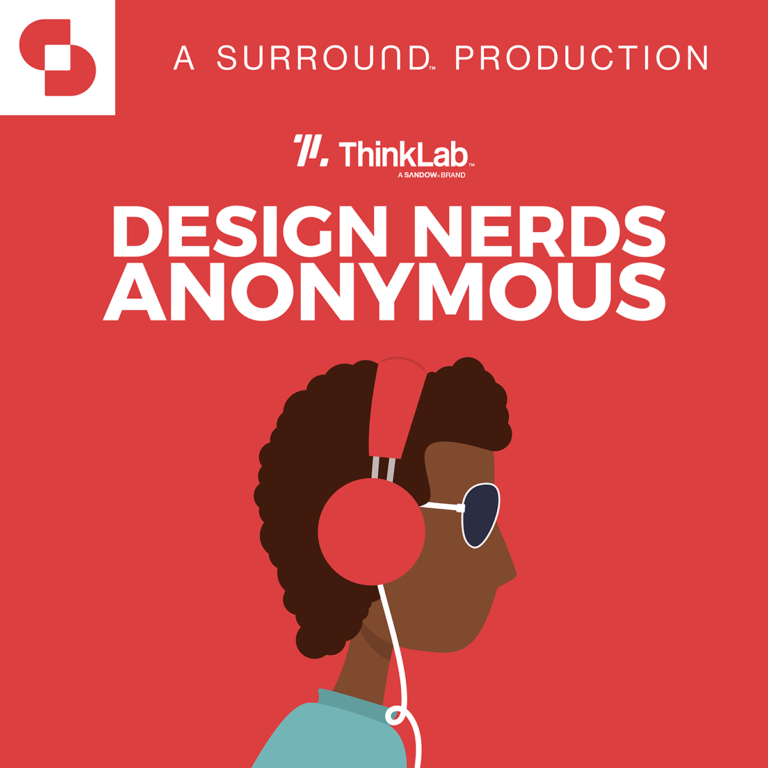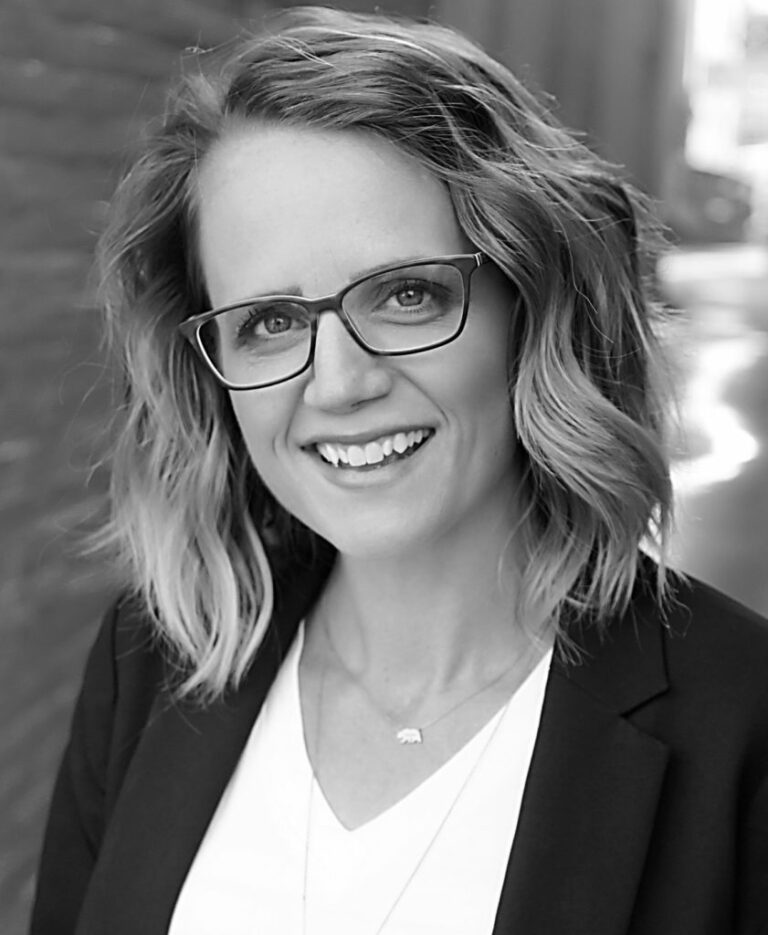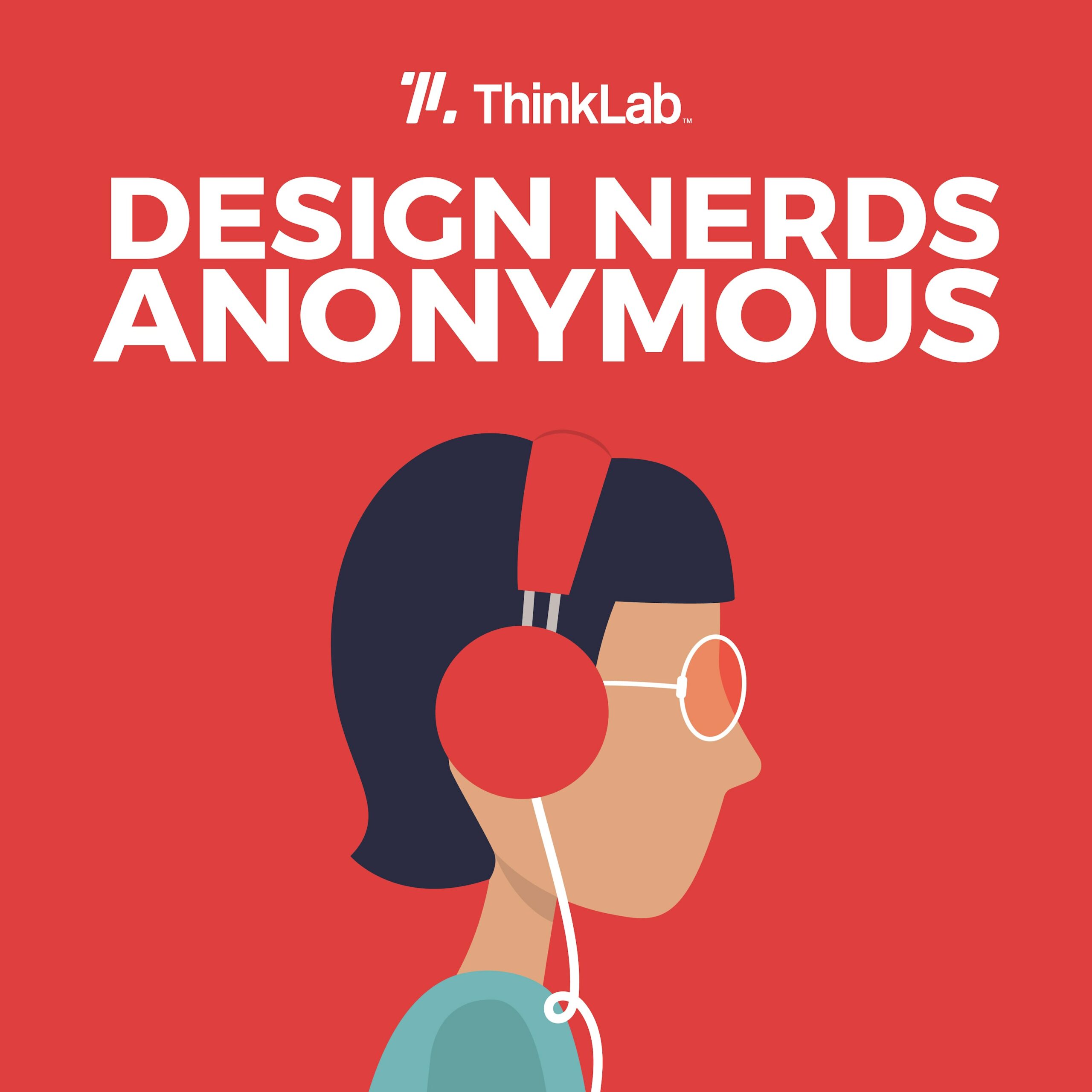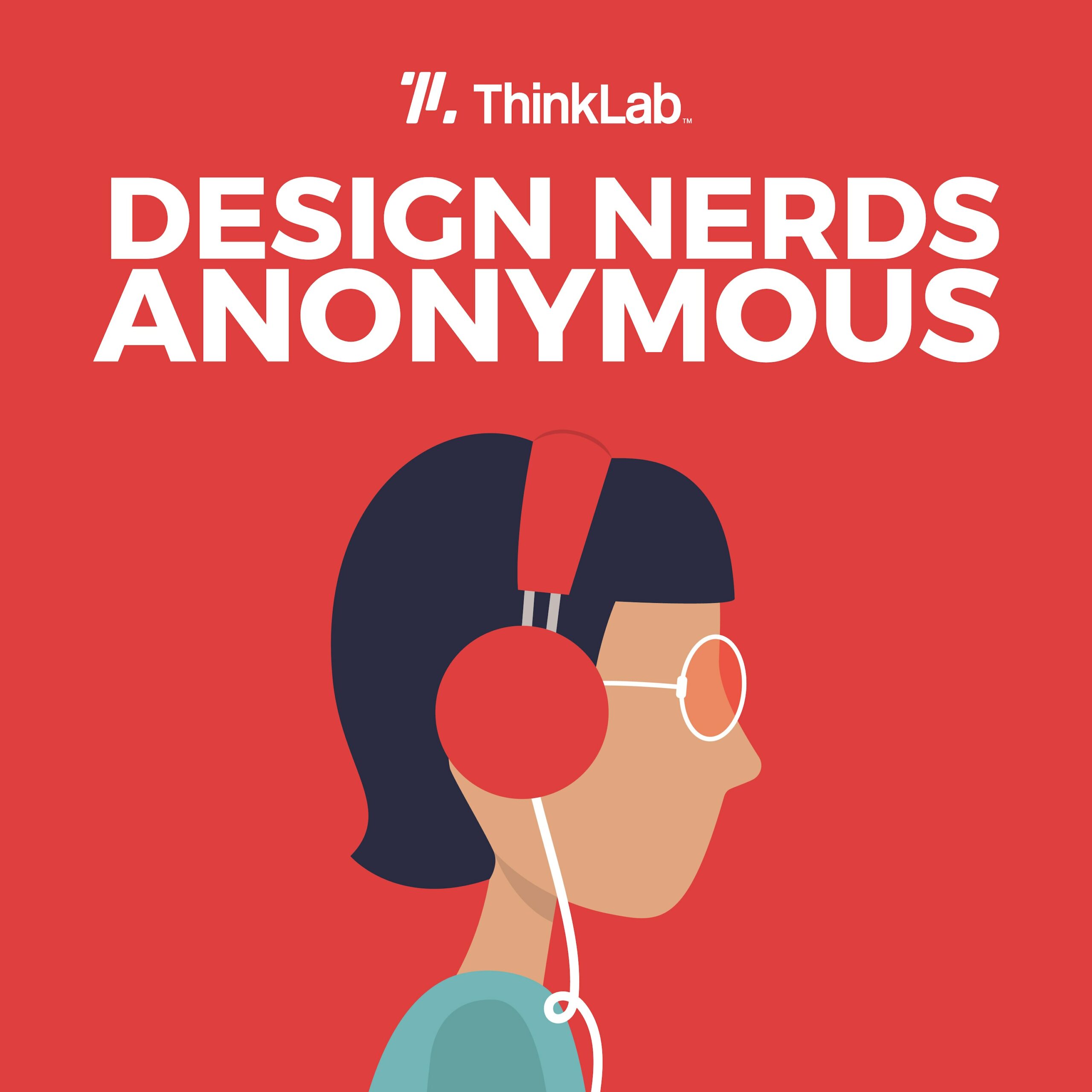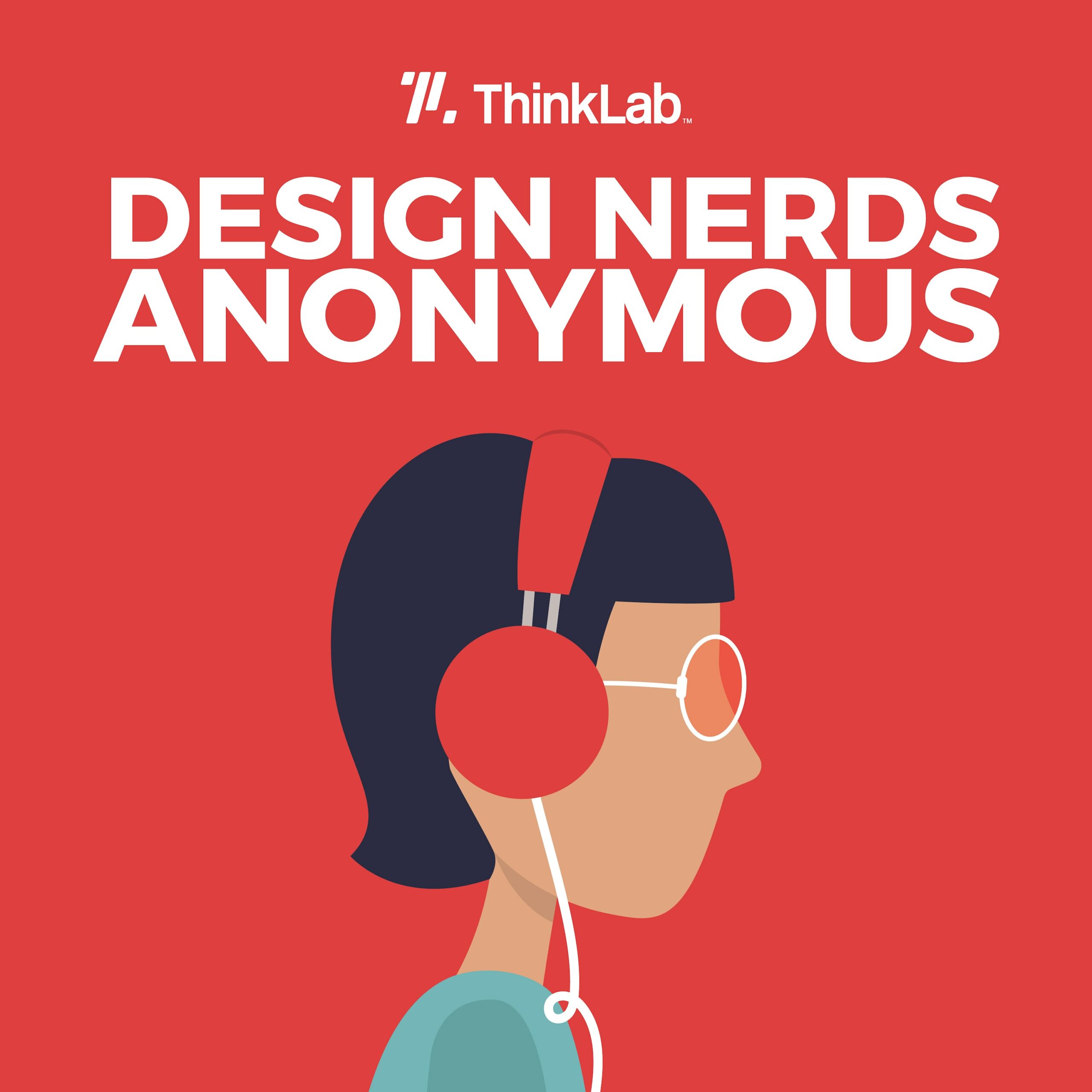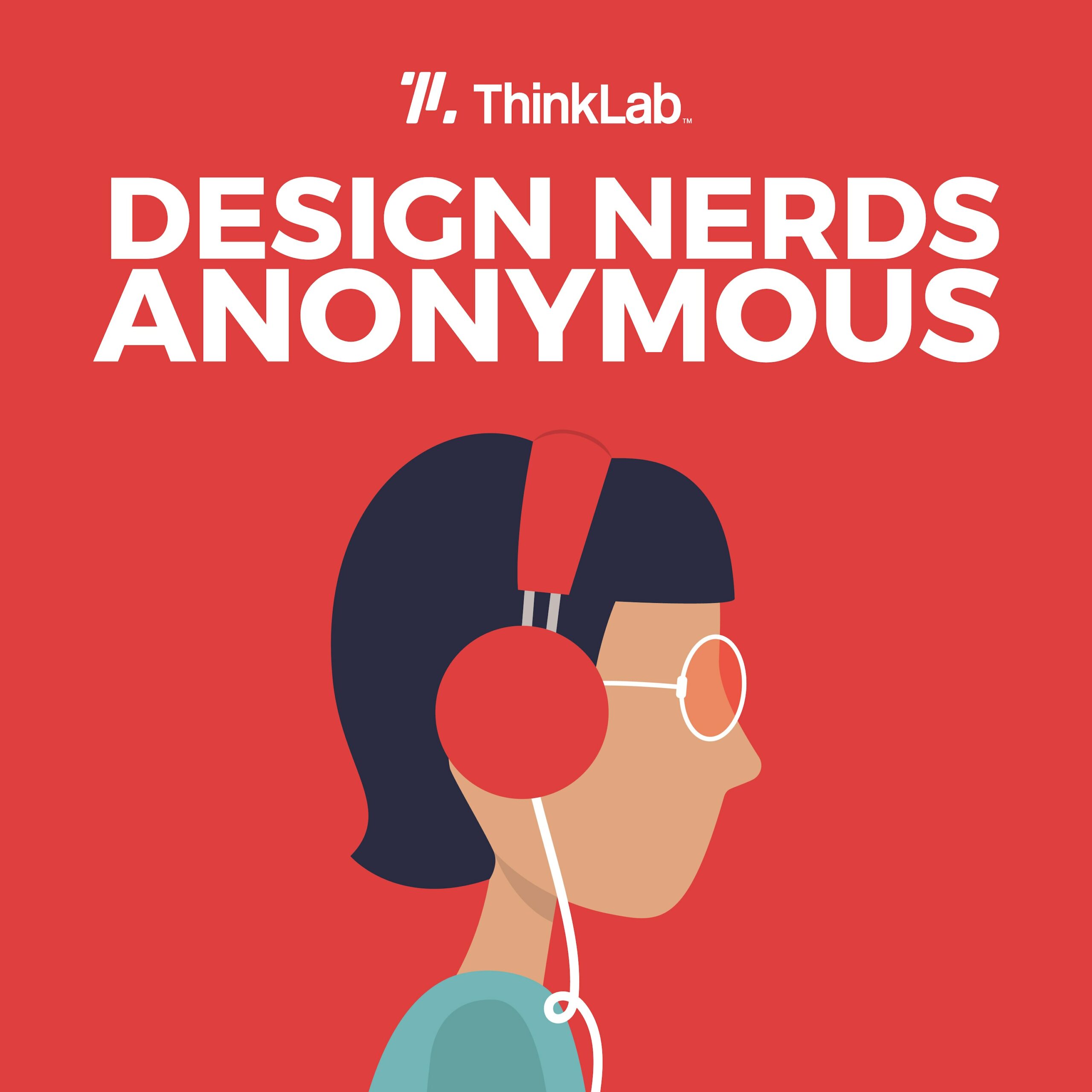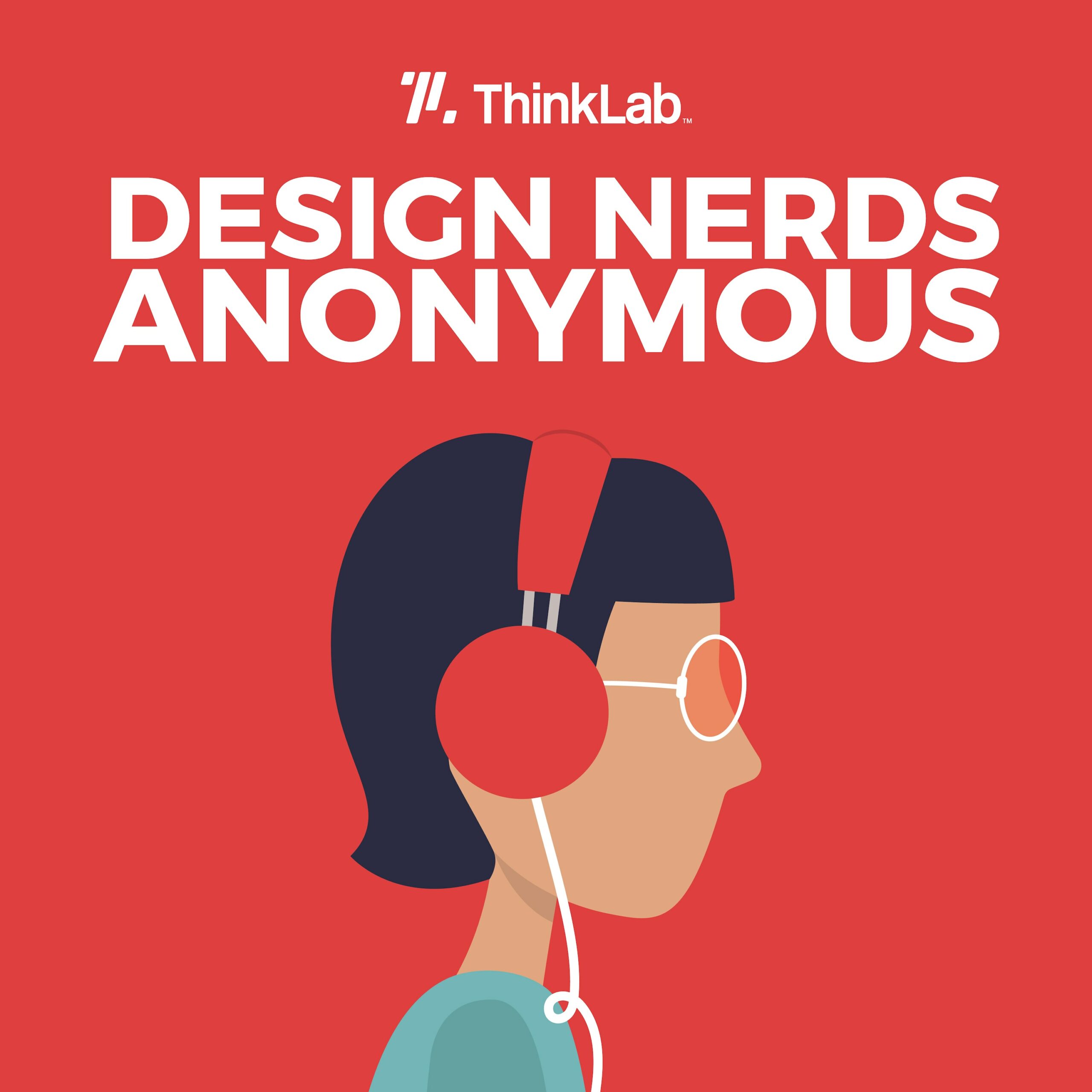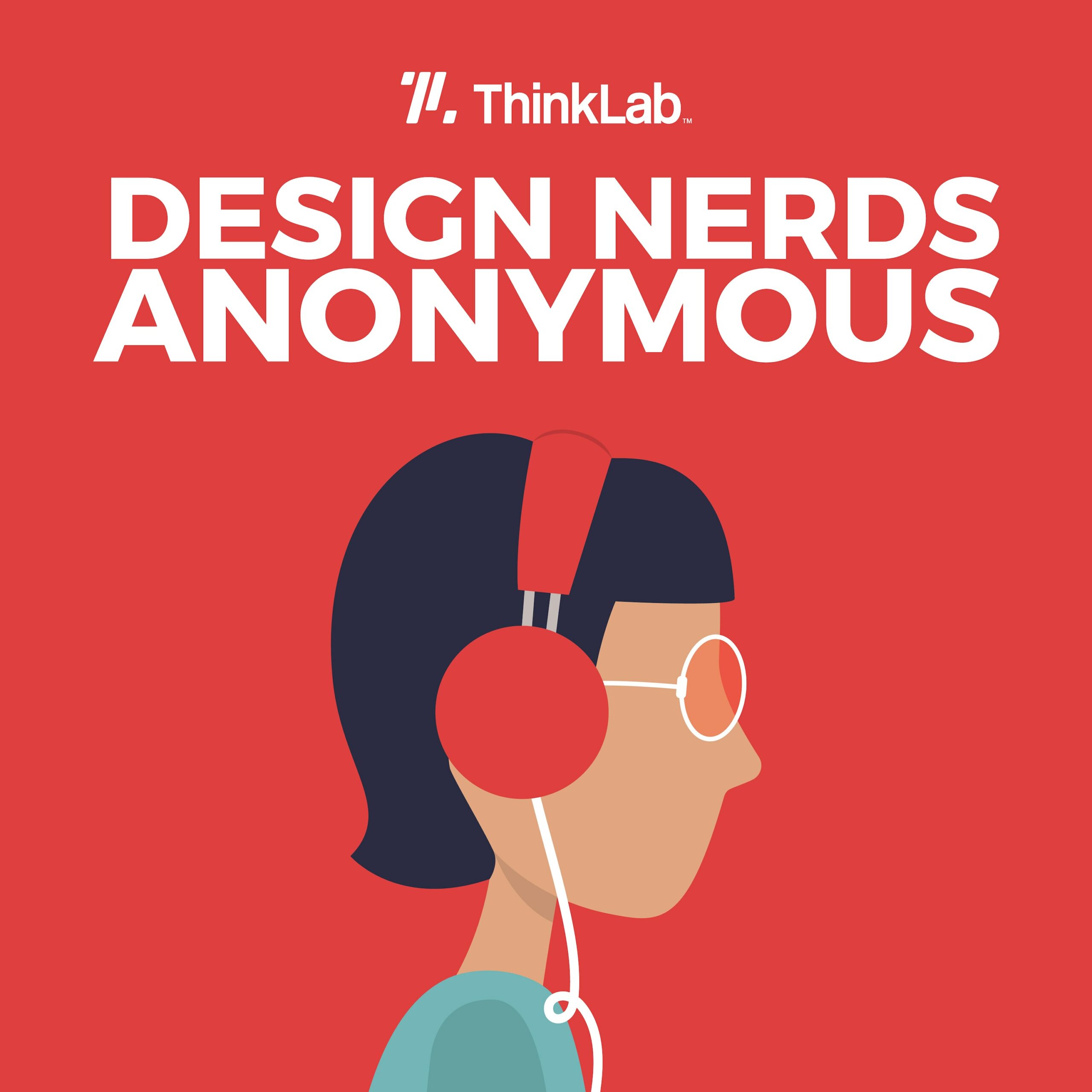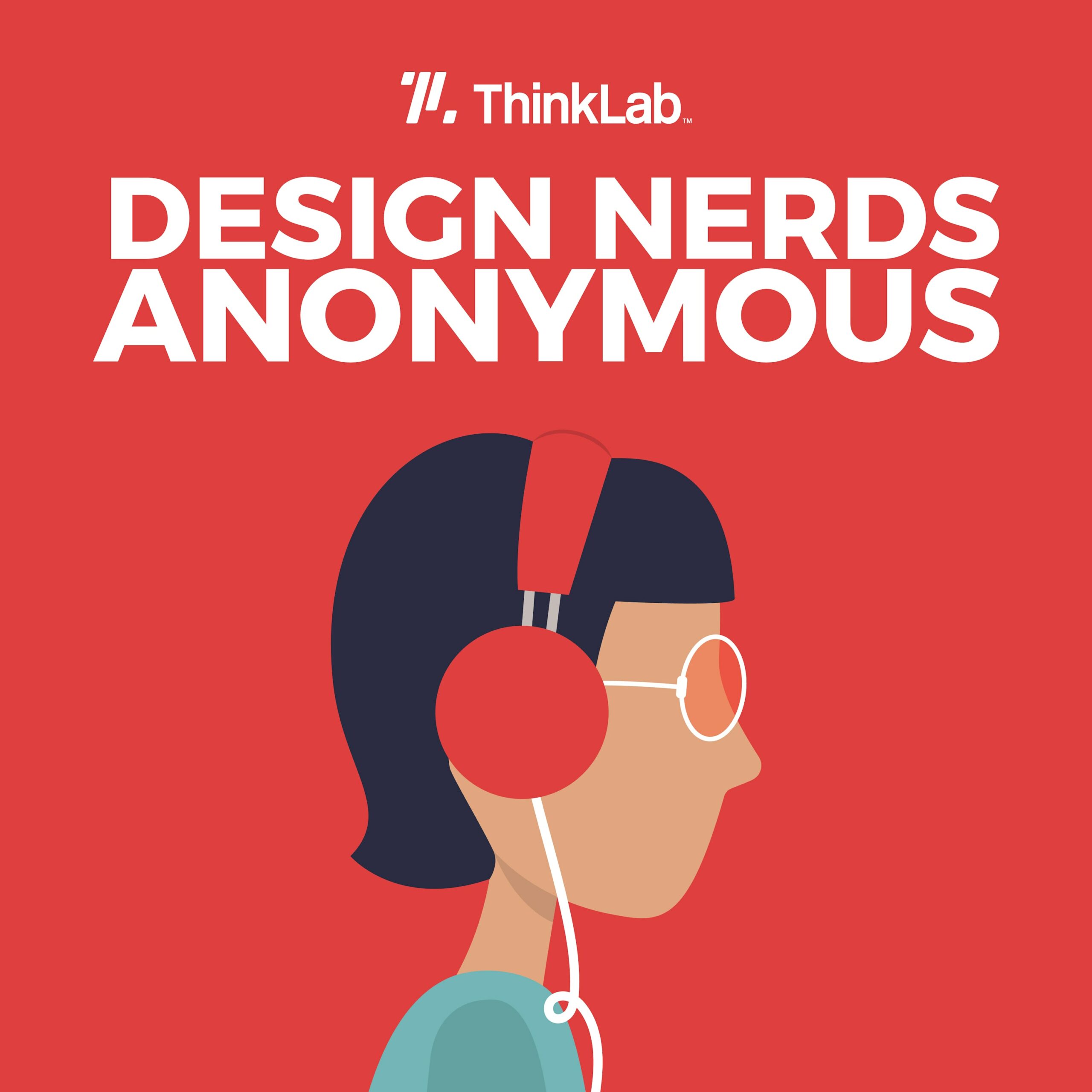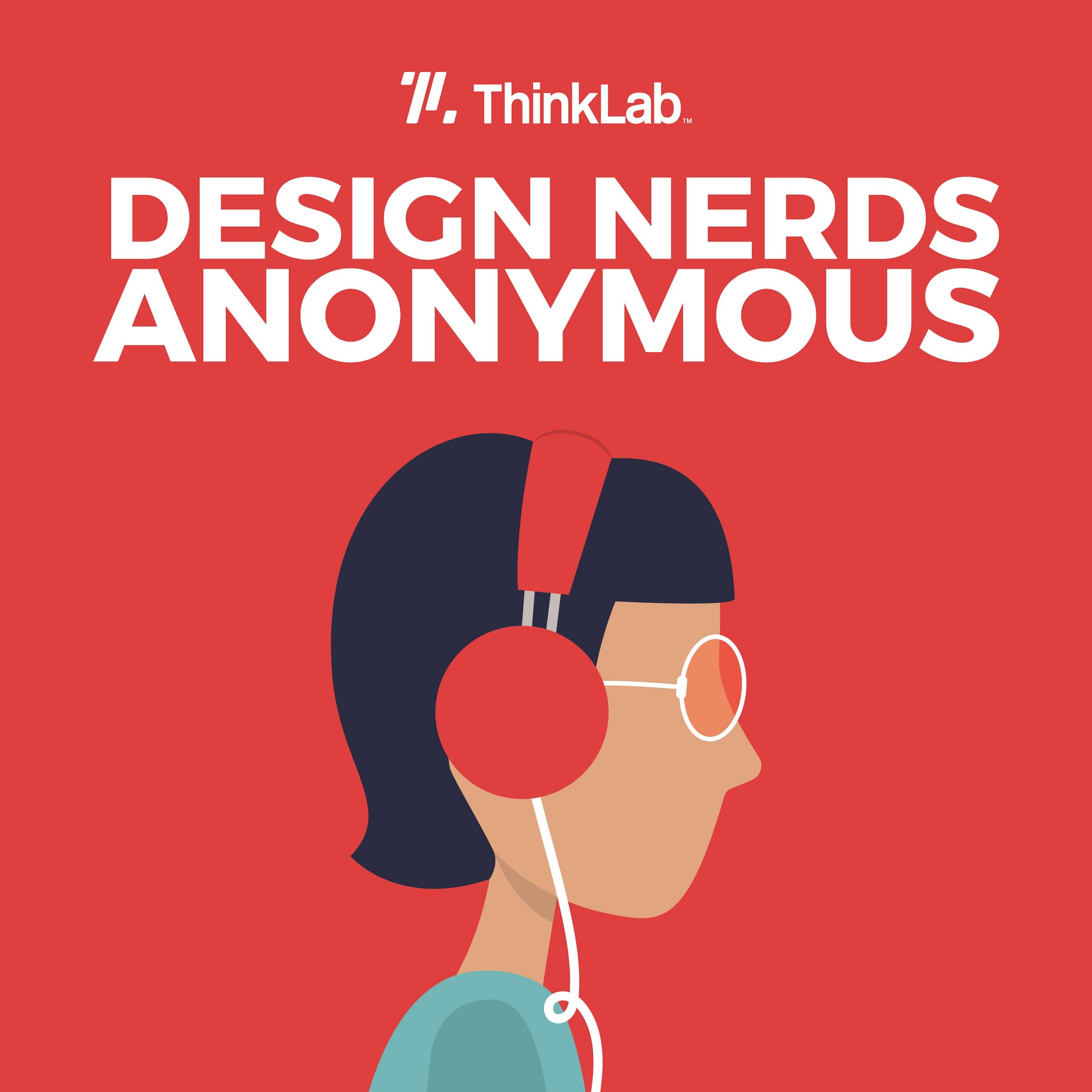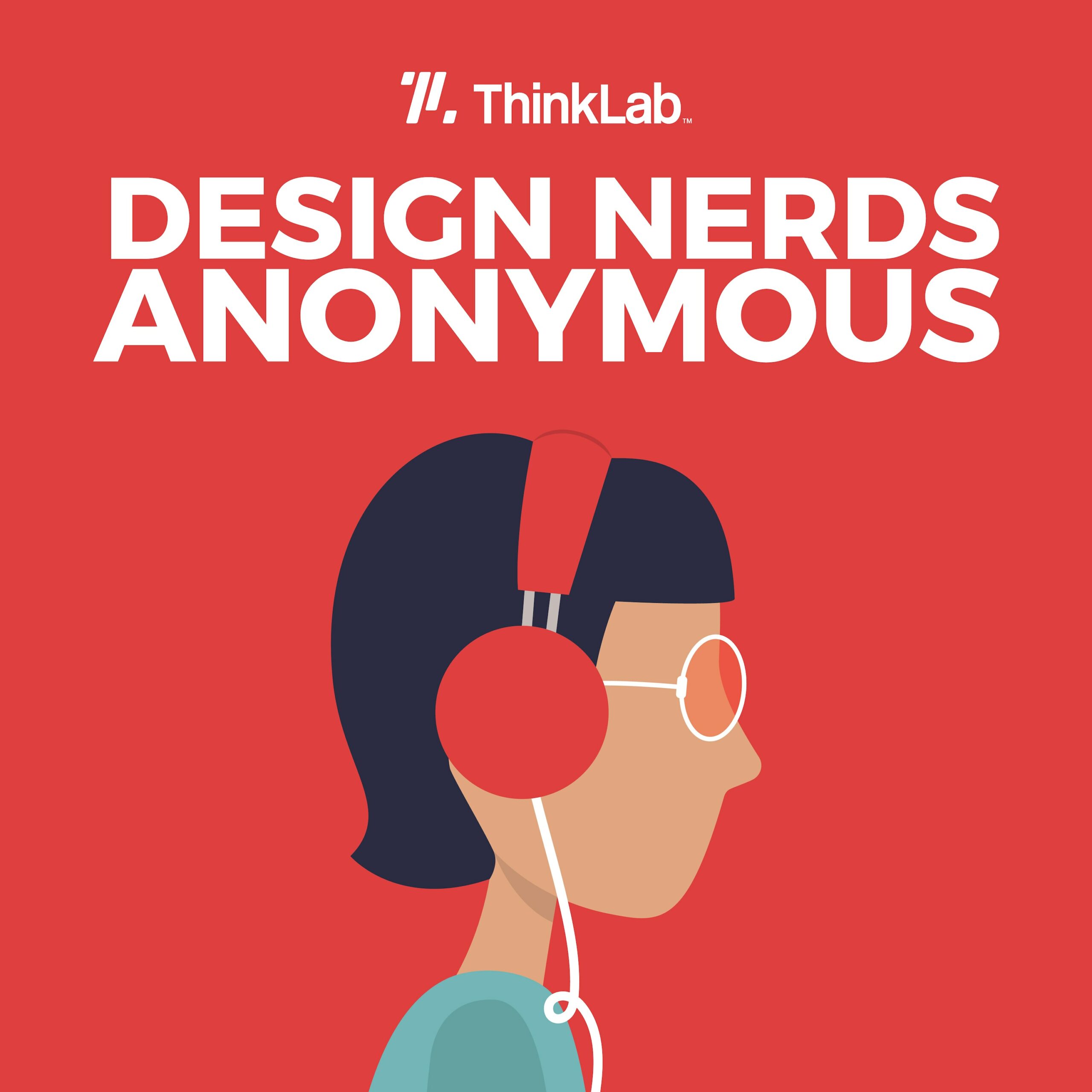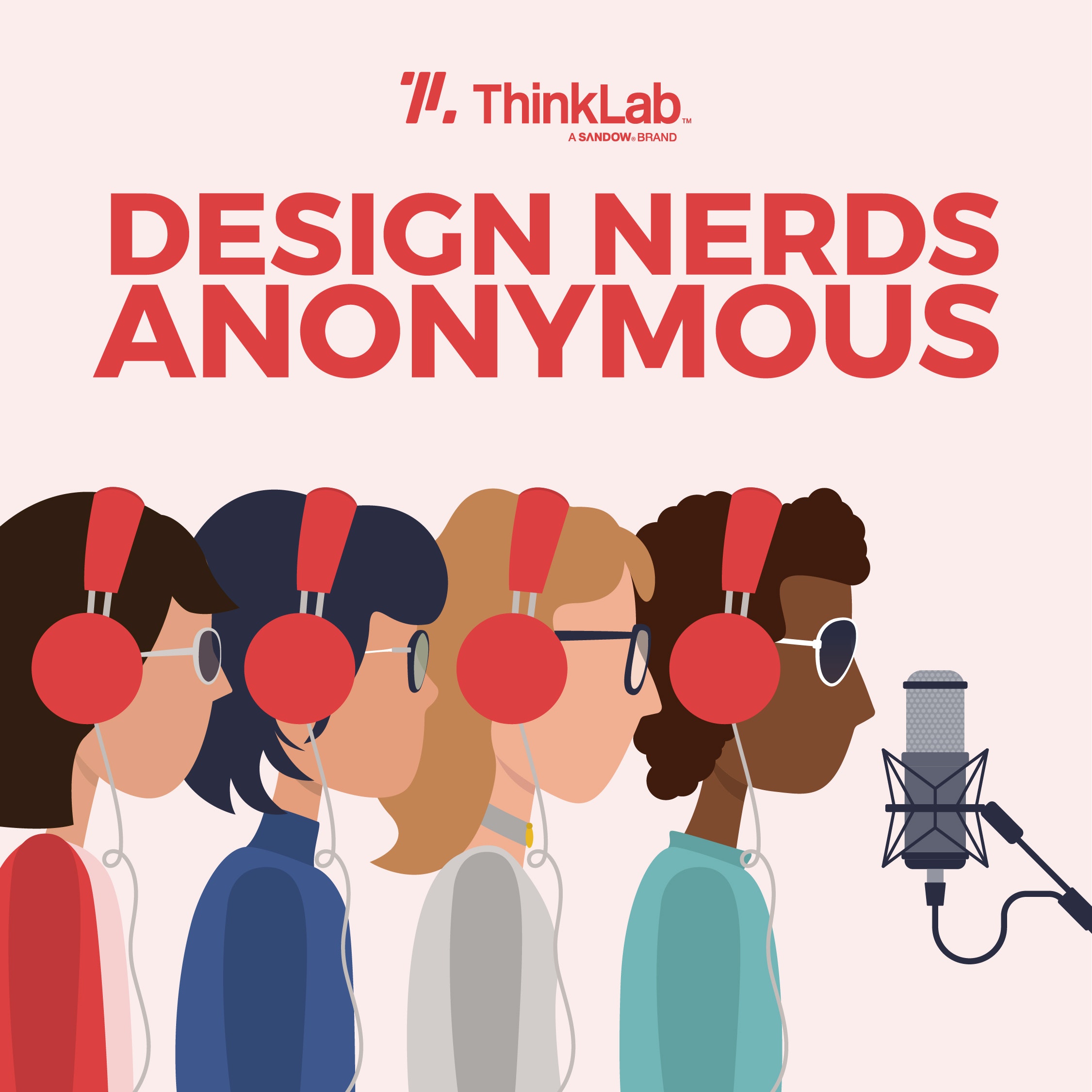In this episode of Design Nerds Anonymous, we explore the dynamic interplay of purpose and passion in the workplace. Delve into the power of understanding the “why” behind our actions and its potential to transform our choices. Learn how a sense of purpose can forge connections, nurture communities, and foster compassion within organizations. We emphasize the crucial balance between profit and social responsibility and invite you to join us on a journey of self-discovery, unlocking the secrets of a purpose-driven life with profound impacts on your career and beyond.
- Learn why delving into the profound relationship between purpose and passion at work can be transformational for individuals and organizations alike.
- Learn how embracing a sense of purpose can create connections, build communities, and foster compassion circles within organizations.
- Uncover how finding the right balance between profit and social responsibility is key to living a purposeful life and making a positive impact on your career and beyond.
Connect with our guests:
Tune in to our episodes for more, and subscribe so you don’t miss our upcoming episodes.
Thank you to our sponsors Mannington Commercial, Mannington Commercial and NeoCon.
(Please excuse any grammatical errors in this transcript as it was auto-generated from an audio file.)
Amanda: [00:00:00] Welcome to Season 5 of Design Nerds Anonymous, the podcast that sparks curiosity at the intersection of business and design. I’m your host, Amanda Schneider. In every episode this season, we’ll be packing in knowledge handpicked from six months of intense research during ThinkLab’s most recent design hackathon.
In this one, we’re exploring how the ripple up effect of Gen Z is set to drive change. In this episode, we’ll be exploring our most inspirational and empowering topic this season, purpose. In Chapter 1, we’re thrilled to welcome Akhtar Badshah, an expert in organizational purpose. An author of the book Purpose Mindset, how Microsoft inspires employees and alumni to change the world as we explore the [00:01:00] transformative impact of purpose in the workplace and our lives.
Then in chapter two, we’ll hear inspiring stories from two of our favorite interviewees this season from DLR Group, a top interior design giant of design who will no doubt remind many of us. Why we got into this industry in the first place. So whether you’re a leader seeking to unlock the true potential of your workforce or an employee searching for meaning, we’re pretty sure this episode will help create a purpose-driven culture that fosters motivation, satisfaction, productivity, and most importantly, personal fulfillment. But before we kick things off, let’s give a big shout out to our incredible sponsors who make this podcast possible. Designers are specifying products, they’re not buying them. There’s a really. different nuance between specifying a product and all of the ultimate requirements [00:02:00] and goals that go into the project versus purchasing something.
Cindy: So how does Mannington Commercial as a partner, as a committed collaborator, serve them better? We want to connect with our customers in a way that brings meaning to what they’re doing. That’s another reason that our sales reps are out there supporting them. We should be putting time back in their day.
How do we harness resources, technology, and people, and relationships, and really push that into creating more space and time in someone else’s life? And then ultimately having a really good outcome for the end user. That is what Mannington Commercial is here to do.
At ThinkLab, our mission is to help you navigate what’s next. So we carefully select sponsors that you want to hear from. Industry pillars who can contribute to these conversations. in meaningful ways, like The Mart.
Byron: I’m Byron from The Mart. It’s more than just a building. The Mart is [00:03:00] interwoven into the fabric of Chicago as an innovator in culture, design, art, business, technology, and more.
This season, The Mart shares insights on the continuous innovation and creativity emerging from its storage showrooms. It’s everything you want to know before and after Neocon, the Commercial Interior Design Industry’s most important event of the year.
All right, my fellow design nerds, let’s meet our chapter one interviewee.
Akhtar: My name is Akhtar Bhatia. I am the founder and chief catalyst at Catalytic Innovators Group, and I’m also a faculty member at the University of Washington. The inspiration for the word purpose. And purpose mindset came about because of my work at Microsoft when I was the head of our philanthropy team, there would be so many people who would [00:04:00] walk into my office just about on a weekly basis saying they have a passion to change the world and that they would like to work with me.
And I always wondered why this word passion became so important in our vocabulary. That students cannot apply to a college without using the word passion 50 times. Every time we want to do something, we use this word passion. And passion is such a selfish word, right? That it is me who is interested in solving something, so you should let me do it.
Comes in from our whole focus of our society, which has become so focused on the me. rather than the week. So that was the first driver of coming up with another P word. All of this left out the greater good. And that’s why [00:05:00] purpose mindset to me became the key word, is that how do we get people to really think about their why, not their how and the what.
And that’s really why I look at the journey of Microsoft, how through its philanthropic program and community engagement program, it managed to open doors where employees could discover and apply their purpose in a meaningful way.
Amanda: Your book said something like, rather than asking what they’re passionate about, ask someone what’s one thing they’ve done to make a difference, because you can discover more about them from their answer, even if it’s something small.
Akhtar: When these folks actually came and told me they’ve got a passion to make a difference, I would ask them, tell me, what have you done? What have you done to make a difference? And it could be something small. I smiled at somebody. This notion of allow me to make a [00:06:00] difference or get me to make a difference versus you yourself making a difference is a very important notion that you don’t need permission to make a difference.
Help your neighbor. Take somebody’s garbage out. Find out if your neighbor, elderly, they’re sick and they want something because that’s what built community. It’s to create this communities of compassion. We focus too much on giving rather than actually being compassionate, which essentially means you’re not expecting anything.
Amanda: I love a line from the book here that says this book will provide a better understanding of how company culture can drive employees to believe in a purpose and create a culture of empathy. And it’s really interesting because I think the heart of our audience is more interested in purpose and creating a culture and impacting the world than the word philanthropy.
You helped create and augment one of the most successful philanthropic campaigns in [00:07:00] history. I think the Microsoft story tops over 2 billion at the time of writing this book. What would you want leaders that are trying to activate their people around creating a culture of purpose to know about your story and what they can take away.
Akhtar: So one of the fun things about writing a book is that the book becomes outdated at the minute you’ve written it. The journey of the book was to actually look at Microsoft’s philanthropic endeavors, because I felt that it was an untold story of Microsoft’s impact in the community. As I was finishing the book, we went into lockdown because of the pandemic.
And that changed my thinking completely in how people showed up for their community. And see what it made me realize that purpose is not about philanthropy or giving back. Purpose is just how you choose to live your [00:08:00] life. It is about how you show up. It is about the way you have recognized and realized and articulated your why, and you step back from the how and the what.
And so the journey after the book, as I started talking to people and as we started doing workshops and companies and corporations. Giving back and philanthropy was not important. What was important is, are your people showing up? Are you, as an individual, do you recognize your strengths, your values, and your purpose?
And have you articulated it? And are you willing to live it? It doesn’t make changing the world, it doesn’t make making a huge difference, it’s just being comfortable with who you are and not trying to emulate somebody else. That purpose is much more important, even for the company’s success, because at the end of the day, the company does not exist to extract, we’ve got to [00:09:00] give back and leave something of value.
So that’s really what I want people to understand. And the conversations in the book about the people that I have. Interview and stories I tell, yes, they went into their philanthropic side, but it is really the story is about how they show up daily.
Amanda: What I like is some of the tangible ways that your book helps translate how to connect with that human need, but also tie it to the broader company.
Many architects and designers get into this particular industry because they have a deep passion for designing spaces to help people thrive. But too often, either through burnout or maybe work that’s more mundane than they expected, that sense of purpose can sometimes fade. What advice from your book would you share with individuals that are listening to this that might be feeling that fading [00:10:00] sense of purpose?
Akhtar: We tie our sense of purpose to our sense of work. We don’t live our life to work. The work that I do with organizations, individuals, and companies, the first thing I tell them that if your purpose and your work’s purpose is fully aligned, then you’re a robot. Because we exist first and foremost for ourselves, our family, our community, and then our work.
So purpose and company’s purpose and your work, there will always be friction. There will always be tensions and things will wane and crest. There are times you will get more purpose from your work that you’re doing, and at times you’ll get more purpose from the community that you’re part of. Or there are times when you get more purpose from yourself, the work, or from your family.
So how do we ensure that we as an individual, we are living in these four circles and not just in that circle of work. [00:11:00] I highlighted these five principles in my book. First, focus on your strengths. What are you good at? We spend way too much time focusing on our weaknesses. By the way, this is a neurological phenomenon.
When people get a stroke, neuroscientists, it’s called the mirroring concept, and they would basically ask the patient to focus on the side. That is strong rather than the side that is weak and the brain starts mimicking and imitating. So how do we think about our strengths and use it daily? Second. What are the lengths of abundance?
We always worry about scarcity. If only I had these resources. Just go do something. Start. We didn’t have masks in March. And Providence Health put out a call for masks. And suddenly small communities got together and started sewing masks. And suddenly there were millions of masks. No one person actually said, I’m going to get a million masks.
So start somewhere. Put on a lens of [00:12:00] abundance. Third, stop worrying about the efficiency of how you do things. Worry about the effectiveness. It’s not about doing things the right way. It is about picking the right thing to do. That’s a big distinction.
Fourth, stop worrying about creating organizations. Think about how do you catalyze movements? How do you bring people along? How do you inspire others to join you? You’re not on this journey alone. Take two friends and do something. And then fifth, is how do we move on this path from generosity, where we say, I’m generous and I’m a giver, to I’m empathetic and compassionate.
That’s a very difficult task. And if you can figure that out, and not think about yourself, but about the larger good, the greater good, the common good, there’s a beautiful article in Forbes, a fortune while these two which came out recently, which actually talks about how we, over the last several decades have [00:13:00] just lost this ability to focus on the common good, that it just becomes this me culture, there is no need to climb the second mountain.
As David Brooks wrote in his book, we can all be on the first mountain as long as that mountain is not just about you. Most of us do that, right? I will have a career. I will climb that mountain and then I will actually give back and I’ll climb a second mountain. Just climb one mountain. There’s no need to try and climb two mountains.
It’s tough to climb one mountain.
Amanda: Many of us think of those two mountains, we’re going to work and earn money and raise our kids and when the kids are gone and when I’m retired, then I’m going to give back and that’s the second mountain that you’re talking about. But I love this idea of doing it all at once.
I really want you to speak to these companies that are trying to do what you help do at Microsoft to create these purpose driven organizations. And I love the last paragraph. It says the time is now for us to shift the way [00:14:00] we live and conduct business. Given the pandemic where the line between work and home has become even more blurred, providing opportunities for individuals to develop this sense of purpose is more crucial than ever.
And you go on to say businesses should become the main drivers behind an individual sense of purpose and that the survival of humanity depends on it. So a lovely, impactful ending there, but if you had to speak to these individual entities or this architecture and design community, which to me has exponential impact because if they can engage this sense of purpose and engagement and put it into action in all of these spaces that they’re creating, where people live, work, heal, play, learn, you name it, what are your hopes and dreams for the future and how we can collectively harness their passion and sense of purpose to impact the world given where we are in this moment?
Akhtar: As much as I’ve said that we live our lives in these four circles. [00:15:00] Ourselves, our family, our community, our work, but our work does become a much larger circle. And because it is also a place where we can collect together, it’s not just individual. We work with lots of different people, and if we can actually create a sense of purpose for companies, and where companies actually provide opportunities for individuals to apply their own personal sense of purpose in whatever way possible, now you’re actually creating this leveraged environment, right?
And you now get onto this path of this ascending spiral of goodness. Start small. Companies don’t have to start big. Microsoft didn’t start something big. It started its work in 1983. It gave away 17, 000, which was big at that time, but it’s still tiny. Start somewhere. It took time and it is annoying and it is frustrating, but [00:16:00] it takes time.
Give yourself time. Give yourself space. But the first thing you should do is to ensure that you respect everybody. And be inclusive. And if you’re inclusive, then as a place where people gather and come, all of that becomes much more effective. Your contributions, the products you create, why you create it becomes important.
Simon Sinek in his TED Talk said that it is not important what you do, it is important why you do it. And people buy why you do things versus what you do. And how you do it. So focus on the why. Focus on that self discovery. And if you’re able to do that as a company, large or small, now you create these connections.
You create these communities. And you create these compassion circles [00:17:00] that help become your foundation and lift everybody up. And they become your champions. Which doesn’t mean that companies are not going to make money. Of course, companies have to make money. But why? Then you’ll figure out how. And at some point, make sure that you do less harm and more good.
If you do that, then you’ll all have a purpose mindset and live purposeful lives.
Amanda: And fulfilled and content lives. If our listeners want any additional information, they want to read your book, how can they find you? How can they find more information about how to create this purpose mindset? The book is
Akhtar: on Amazon, so you can go buy it there, but you can actually also join us at
www. purpose mindset. org. We have a community there. Join us. Share your experiences. Tell us how you are leading a purposeful life. What is the one thing that you are doing to Help and [00:18:00] change and how is that changing yourself?
Amanda: Wow, that chat with Akhtar was equally motivational and challenging, but lucky for you, we’ve only just begun.
In Chapter 2, we’re passing the mic to DLR Group. To help us move these ideas from theory into practice. And especially, as we dive into this important topic. I want to invite you to think about how you can influence this spiral of goodness. So I want to invite you! As you listen to this podcast to help inspire these ideas into action, simply share this episode with someone who you think would be inspired and keep the spiral going.
Let’s dive in to one of our favorite interviews of the season recorded live at Neocon 2023 podcast studio powered by surround and sponsored by snapcab. Meet Audrey and Lenis. [00:19:00]
Audrey: I’m Audrey Cohen. I’m the global interiors leader for DLR group. DLR group is a global firm. We’ve got 30 offices across the country and a couple overseas, and we work in a lot of different market sectors and have a lot of opportunity to create passion in what we’re doing.
I think one thing that stuck out to me is truly the word passion and how he changed that P word in his interview. And I think it’s something that as a leader, I’m like, how do you create? Passion for your employees. How do you create passion that engages beyond just what we’re doing, but in what we do and how we’re really creating spaces and environments that evoke passion and others.
Lennis: I’m Lennis Serrano. I’m an interior designer for DLR group. I grew up in Compton, California, and currently residing in Long Beach. I’m 26. I graduated from California State University, Long Beach. I got my bachelor’s in finance and interior design and a minor in anthropology. This was back in 2021. So now I’ve been officially in the interior design industry for going on close to two [00:20:00] years.
Amanda: Tell us a little bit about kind of your passions. I know this came out in our Gen Z session that you were a part of around purpose. So tell us a little bit about your passions, anything you want to share on mic about kind of your background and what even got you into design.
Lennis: Coming from a Mexican American household and being first generation to go to university, even though I tend to forget that I am first generation, just because I always just followed, just trying to make my parents, my siblings proud.
So when I was a kid and I told them. I want to own a body shop. I want to work on cars. They’re like, no, you’re going to be an accountant. You’re going to make money. You’re going to go for something that’s going to be economically more sustainable. I remember crying and saying, no, I don’t want to do that.
And luckily a lot of my family members were electricians. There were plumbers, there were contractors, there were woodworkers. So I already kind of had that background in terms of my family and working with their hands and working in construction. So I started to kind of look at some of the innate interest that I had. [00:21:00] And I realized that I kept drawing this body shop. So it was more or less through that process of wanting to own a body shop and dreaming about it. What I enjoy the most is being the one that makes the decisions and programming that body shop and where cars will go get service or where they get their wheels changed or paint and what so on and so forth.
So I really enjoyed that process and it wasn’t through you. Multiple avenues of studying architecture in Compton, Dominguez High School back in Compton. And then eventually going into industrial design at Long Beach and then switching to interior. And it was through that process of peeling back the layers and realizing what I’m truly innately passionate about.
Not necessarily just something that I like to do, but something that kind of just comes naturally to me, which is programming and I guess like real life Tetris in a way. Fitting things together and making things work. That’s something I’ve always loved. But now, fast forwarding out of DLR group, being hired as an interior designer.
We touch a lot of different projects. I want to say it’s great that we have the autonomy to float between different sectors. This is my first year touching a bunch of different projects and, and sectors. But the one [00:22:00] thing I knew I always wanted to come back to was working on schools, just coming back to Compton.
And I remember doing a couple design presentations to students, and I know I loved showing students about design and showing them that if you love art, you don’t have to be the next Picasso. You can use that same artistic kind of view to do design, whether that’s creating an object such as a coffee mug or, you know, designing a space for people or architecture and building within the built environments.
The way that I grew up in the schools and those poor facilities, failing facilities, and my mom always being very, very involved with, with PTA meetings and looking at how the school can get someone better even though it seemed like it never did.
I really found a way to tie all that together at DLR Group. So now I’m working specifically in K-12. I’m luckily now even working on Compton High School, which is a school back in my hometown. And it’s crazy because I remember back in 2019 when I was going through a very traumatic experience through my life going through school.
I remember writing down through trauma, the only way to get through it is to find something that can be [00:23:00] passionate about. And that’s when I wrote down, I’m going to work on some projects in my hometown, one way, shape, or form, whether it’s a store, whether it’s a school, but I’m going to go back. And that was my way to do something that was a lot healthier as opposed to just focusing on myself.
But through that process, I found a lot of peace within myself as well. Just knowing that. I could help others through design in a much more real and authentic way that I wish I always received when I was a student there or a member of that community. So fast forwarding now to 2023, I am working on Compton High School, and it’s just a full circle moment for me.
And then not only do I get to work on schools, you know, in the city, but I’m also involved in planning projects. So just getting a chance to work with schools on the front end and be involved in community engagement and talking to parents, talking to students, it feels like I’m talking to my younger self sometimes.
It feels like I’m talking to my mother. So it’s shocking in a way, but it brings me a lot of joy and happiness. So I just love that I’m giving that autonomy to really chase after what I love to do.
Amanda: [00:24:00] Okay. Interview’s over. Mic drop. So Audrey, I know you got to follow that. What’s your passion and purpose around design and your love for DLR group.
Audrey: What excites me about the work that all of you do in this whole industry is the exponential effect that it has. So you can impact your own companies, your own space, but also you’re having all of these conversations with all of these other. leaders and businesses around the world.
Tie that back to DLR to your passions, the work that you do. What excites me about the work that all of you do in this whole industry is the exponential effect that it has. So you can impact your own companies, your own space, but also you’re having all of these conversations with all of these other leaders and businesses around the world.
Amanda: Tie that back to DLR, to your passions, the work that you do.
Audrey: So I think from DLR group’s perspective, our tagline is elevate the human experience. And so when we talk about space, when we talk about the impact and the passions that we have for design, that all [00:25:00] comes back out in how other people get to experience it.
And that gives us purpose in everything that we’re doing. And as I’ve evolved into a leadership role, now I look at our own employees and the people that I get to touch and the other leaders that I get to engage with and just think, How am I giving back to this community in our own offices and in our own company?
Because that is also as important as it is to our clients. And so I love the Gen Z conversations that we’ve been having because they’re have been a lot of conversations about they want purpose. That is their driving factor of give me a reason to stay. Give me a reason to be involved. And I love Lennis, your story, because it is like you said, it gives us goosebumps.
It gives us chills. And those are the things that drive us. And for me, seeing those opportunities and leaning into them within the firm within our design community and within the overall industry is just really important that we take those opportunities. We have the hard questions with our family when they’re like, what do you mean you want to be a car designer?
His book also talks about the why and why are you doing this? [00:26:00] And even if it’s baby steps of saying, wait, I like the Tetris block of figuring out how cars come into a space that’s different than working on a body shop car. And you figured that out, which is just amazing. And I love those types of connections and those purposes that really drive us from a design perspective and a creativity perspective, too.
Amanda: You’ve been on panels with us here at NeoCon. You’ve been wickedly engaged. You got your own survey responses from our survey. Knowing this topic is around purpose and around creating a culture of retention for our, inspired by our Gen Zers, but for All of your employees, whether it’s something from Oktar, something from one of the panels, something from all the research pieces that you’ve gotten.
What advice do you have for our industry or for your clients as we think about the things that you hope that people take from this as it relates to that sense of purpose?
Audrey: I was reflecting on some of our conversations from yesterday. I think we have to think about change. We can’t keep doing things the way we’ve been doing them if we’re going to evolve and if we’re going to progress and we’re going to [00:27:00] continue to provide opportunity and purpose for others, both in the design industry or for our clients.
We can’t be okay with the status quo or going back to what it was pre pandemic. And we have to be able to be open minded about What that could look like because it’s different. And that change management process is hard. I even think as a leader and we talk about Gen Z is like how to engage, how to ensure that they see their opportunity to have purpose that looks different.
It looks different than what I was brought up through the industry in and I have to be open minded enough to understand How do I support that? What does that take from my perspective as a leader? How does that evolve within our companies, within our firms? As I’ve reflected over all of this, I’m like, we’ve got to move in a different direction to be able to keep up with the pace of change that’s happening around us.
And that is a cultural shift. It’s not just saying, oh, I’m going to make this one little change and everything else is going to stay the same. And so I think [00:28:00] that’s an overarching idea to really Continue to drive purpose behind everything that we’re doing is we have to be open to the opportunities to evolve.
Amanda: Lennis, when you hear some of that and you think about some of the ideas that came up and really what would make you feel connected to this industry, connected to your organization, obviously you already do. What are some meaningful pieces of advice that you would have for the industry?
Lennis: We kind of spoke about this yesterday during the panel discussion in the KHO room, but it was really just about being honest with them.
I think authenticity, especially, maybe it’s just a testament to our, to my generation, but you’re brought up and you’re bred to kind of really be able to sniff out an unauthenticity or artificialness. I would say being authentic, genuinely being real and telling them like, Hey, I see this for you, or hey, I think you should try this, or hey, what do you think about this? In terms of leadership to just giving that freedom to explore just the everyday work life and just understanding that you’re there and you’re present. You also care and you want to see them grow.
Amanda: I think one of the interesting things about that panel that happened in the KI [00:29:00] showroom that was authenticity is definitely like loud and clear from Gen Z.
We want authenticity. But what does that look like? Because I would say most leaders don’t wake up thinking I’m going to be inauthentic or I’m not going to treat you well today. Everyone has the best intentions. And we even talked about this idea of the golden rule, right? Treat everyone like you’d like to be treated, yet.
How a Gen Z er would expect to be communicated with or treated might be a little bit different than some other generations. So what advice do you have for authenticity and how other leaders, no matter their business, can make that happen? Because that sounds like a critical component of purpose to you and feeling connected to an organization.
Lennis: You’re right. That’s a great point. It’s not like you wake up, I’m going to be an unauthentic today. Yeah, I’m just going to be a jerk. And I think back to my mentors too. For example, like Anton that I’ve worked closely with out of our LA office. He’s been someone who’s been great about giving me the space to voice my passion.
And my innate interest and what I can bring to the table. So it’s just the care factor. [00:30:00] It’s the, do you really care about your people? Do you really care about enough to sit down with them? Can I add
Audrey: We kind of to that? I had a designer on our team that I don’t get to interact with a lot. He just messaged me yesterday and was like, I hope Neocon’s awesome.
I hope you killed it. And I think that intentionality of knowing what’s going on in other people’s lives has as much of that authenticity language to it as just checking in on your project work. And that is a holistic aspect, not just
Amanda: It came up in some of our leadership sessions, too, where they said, I feel like our people are more connected to our leaders than our brand today. And so how do we manifest that in an authentic way?
Audrey: Jake was part of the panel for from DLR group yesterday, and he mentioned that we have a career management program that we’re rolling out, and we’ve had challenges in the past with what is career management look like?
How are we evolving this? How are we growing? And I think what we’ve got now, it’s a structure, but at the same time, it’s very much You need multiple [00:31:00] perspectives weighing in. You might have one person that’s your point person, but that shouldn’t be your only mentor. And I think that’s something that we’ve talked about over the last couple days from a Gen Z perspective, but also I’ve got different people that I talk to for different things.
And so I think that idea of engaging a A diverse network of people and building those relationships is really important to finding that deeper value, that deeper purpose within a firm. And as leaders, I think we’ve we need to invest that shows them that there’s reason for them to invest back, right? And so I think that those That diversity, that opportunity to have a broad perspective is really important.
Lennis: I just wanted to add a little bit to that because we’re throwing around management and we’re throwing around leadership. And I think there’s this distinct difference between the two. Oh, that’s a mic drop. Even mentors as well. Just because I’ve been in leadership positions, I’ve been in management positions.
Whether that’s through student groups or past jobs. I’ve gotten to really analyze what a true leader is. Specifically with this career management, I think the name is [00:32:00] perfect. Career management, right? It’s someone that’s helping you manage. The way you’re trying to maneuver your career and a mentor is different.
They present more of that leadership position in your life. You know, in terms of this is a person that’s going to make you feel empowered or make you feel like you can do this because this is what I did. That’s why I say like, Oh, Anton’s my mentor, because he’s really great at kind of self guiding and we both have that hyper level of curiosity and.
And passion and we’re really big on like voicing them, but the whole career management, it’s great because they’re my career manager. It doesn’t mean they necessarily have to be my mentor or they can be a mentor, but that’s not necessarily the label that they’re being placed at. I’ve seen it a lot of instances too, where leaders will get mistaken with management roles.
They’re actually leaders, not really just good at managing. To my point, going back as a Gen Z, even like that authenticity part, can I see authenticity in you and just the persona that you are and the way you carry yourself?
Amanda: Even talking about that program, Jake, who is on the stage for our panel, his mentor was in the audience.
That gave me chills and [00:33:00] the authenticity with which you guys even shared. Here’s what worked and here’s what we’ve learned. There were some things that didn’t work, so it’s not all pulled together. So I know we’re kind of coming close to the end. What haven’t we talked about that we should have as it relates to this topic?
Audrey: One thing that we often do is we think more about where we failed than where our strengths are, and we just talked about how career management we’ve learned things right. And so the strength in that is doing it again and figuring out how to do it better. And so I think making sure that we’re leaning into where people’s strengths are and not necessarily always looking at what we need to fix.
I think the other piece that was talked about was just. Getting over the hump of what’s holding you back, that lens of abundance that he talked about, I thought was really fascinating, and I don’t know how many times I think, if I only had whatever, so I could do this, what else could I do to move the needle on something that doesn’t rely on a resource that I don’t have?
There were just mindset [00:34:00] shifts that he shared that We’re really interesting to me, what are the things that are holding me back and why? And are there other ways that I can maneuver around those roadblocks that can help us evolve? And I think he was so inspiring to listen to and think about just those opportunities of change because we need to continue to evolve and ensure that we’re setting up the future of our design industry in a really positive way.
And it’s not going to look like what it’s looked like in the past.
Amanda: Ness, what else has stuck out to you that we haven’t talked about?
Lennis: I tell my family members, I tell younger students that being a Mexican interior designer, presenting back in Huntington Park, whether that’s Compton, any of the inner cities that I’ve, that I grew up around, I tell them, don’t feel pressured to do something because your teacher’s telling you or your guidance counselor, your parent, my family telling me to be an accountant, chase after it.
Don’t just sit there and think, I’m just going to take the easy route. Don’t settle for the outside noise depicting who you want to be and really sit down and think about. Who you are and what your passion, what your [00:35:00] purpose is. And I remember even in our think lab session about passion, I felt like I was just gliding around.
I literally felt like I was flying during the conversation because I felt like I was just free. People were talking like, I wish I had this, I wish I had that. And I was like, I have that and I have this and I got to do this, and I do this on my own time. But yeah, I think it’s just about looking deep. And so what you really like to do and who you are.
Audrey: I think back to the first conversation I ever had with Lennis when he was an intern. You figured out a way to remove those roadblocks so those opportunities could come to you. I found out who you were because you approached me and asked a bunch of questions. You probably didn’t know you were doing that at the time, but I think you encouraging your peers that are still struggling to find that.
How do you remove, what is your roadblock? If you can identify it, how do you get around it? How do you move it? How do you create a way with what you’ve got currently?
Amanda: One thing I feel like we would be remised if we didn’t talk about here is also, we are a passion and purpose driven industry. But I also want to throw out this burnout word, Audrey, you’re a mother trying to make it [00:36:00] all work.
And I have found your passion. You’ve removed all these roadblocks, but sometimes when you blend. Passion with work and it’s so much, it can be easy to get burnout, so can we briefly just see where that one goes?
Audrey: I have to personally reflect on my why a lot, and I think that purpose-driven mindset for the greater good gives me a lot of balance in my personal life with my family because that is my why that comes first and foremost.
My girls come first and foremost to my husband, and I just think if that’s not in the right place, The rest of it’s not going to fall into place. And you think about the mountains and I was like, if I don’t get that first mountain. I can’t actually get to the top of it and combine the two. I think you also have to really recognize where your time is most valuable and how you manage it and what you can give up as selfish as that sounds.
I will not be my best self for my family or my work if I can’t have that balance. You know what? You have to remember the ROI of your own [00:37:00] individual self because. If there is no return on the investment that DLR group has made in me, what’s the point? If there’s no return for my family, what’s the point?
You have to be able to balance that and know where to say yes and where to say no and how that aligns with your purpose, your why, what gets you up in the morning.
Lennis: I don’t want to sound like a motivational speaker or anything like that, but I hope someone tries to make me burn out because I, I have a strong why, and that why is my mom.
The biggest reasons for that is, I lost my mother while I was in college, and that was the trauma that I experienced back in 2019, and I was trying to figure out who I was and what I wanted to do, and I looked at who my mom was, and she loved helping people, and she was really involved in school, and I loved designing, and I kind of connected the two.
But I say this to say not, not as a sob story, not as like a, look at me, like, I made it through. Even though I miss her and I’m sure she’s looking at me, you know, proud, I say this to say that everything that you do could be bigger than you. And I hope to just sit in my [00:38:00] city and kind of realize like what I’ve accomplished and what I’ve done and those that I’ve helped, that’s why I can’t burn out.
And I’ve quite frankly, I don’t think it’s in me to burn out. I hear other people working on the weekends. It makes me want to work on the weekends. I hear people working long hours and I’m like, I want to work more hours, you know? Maybe that’s a toxic trade, but I don’t know. For me, I’ve used it as more of a strength and to give me life and allow me to wake up in the morning and feel excited because I know that every RFI I’m responding to at Compton High School, it’s part of a bigger mission.
I can truthfully say I’ve been running on passion and running off love.
Amanda: Design Nerds Anonymous is a proud member of the Surround Podcast Network. Discover more shows from Surround at surroundpodcast.com. Want more great podcast content from ThinkLab? I have great news. We took the traditional CEU and gave it a new twist by launching the industry’s first CEU podcast, The Learning Objective.
Now you can listen and learn on the go and earn CEU credits while doing it. And even better news, we have a CEU certified episode just for you. On the topic of our Gen Z insights, you’ll find the link in the show notes. This episode of Design Nerds Anonymous was produced and edited by SANDOW Design Group.
Special thanks to the podcast production team, Hannah Viti, Wize Grazette, Rachel Senatore, and Samantha Sager.

